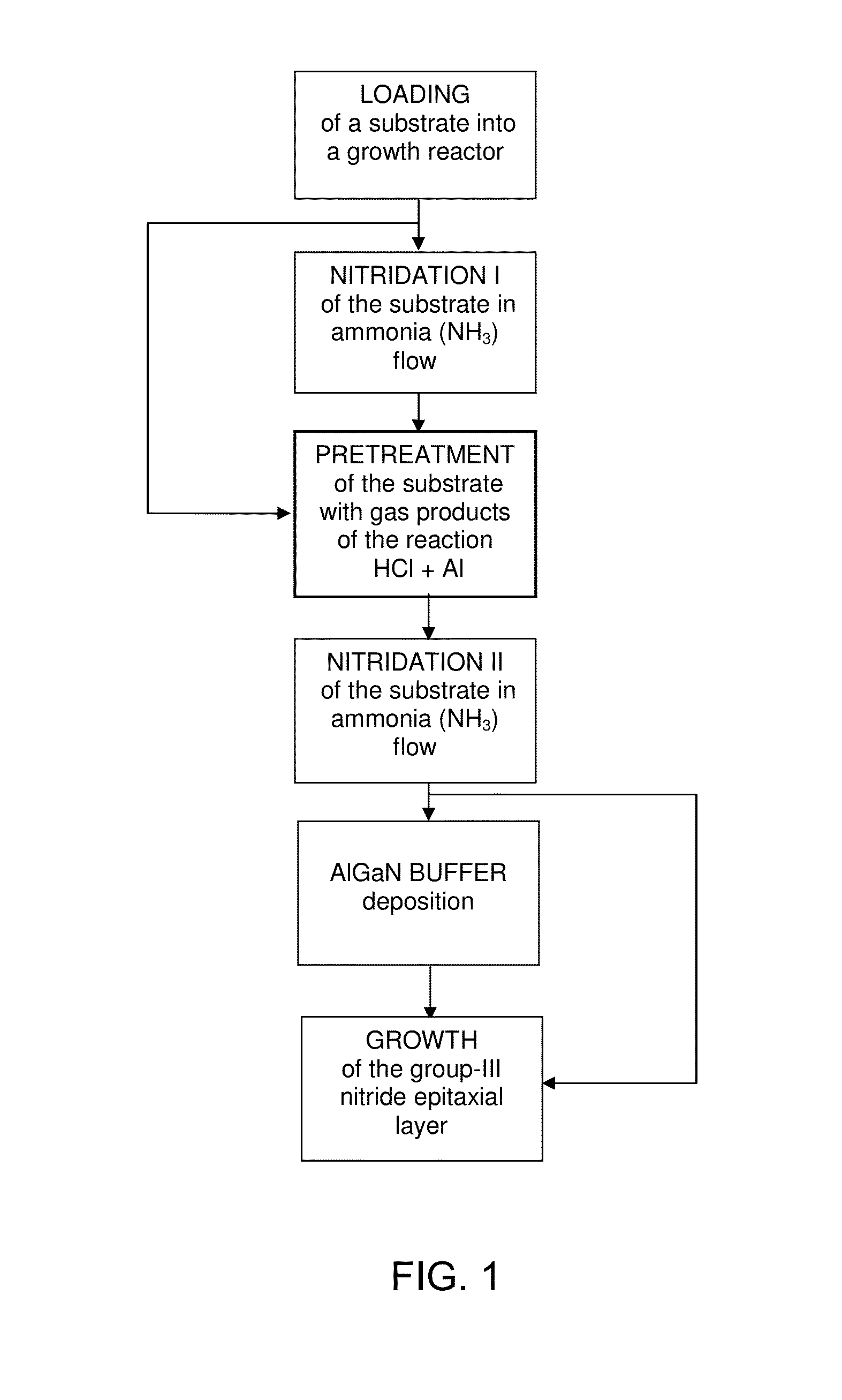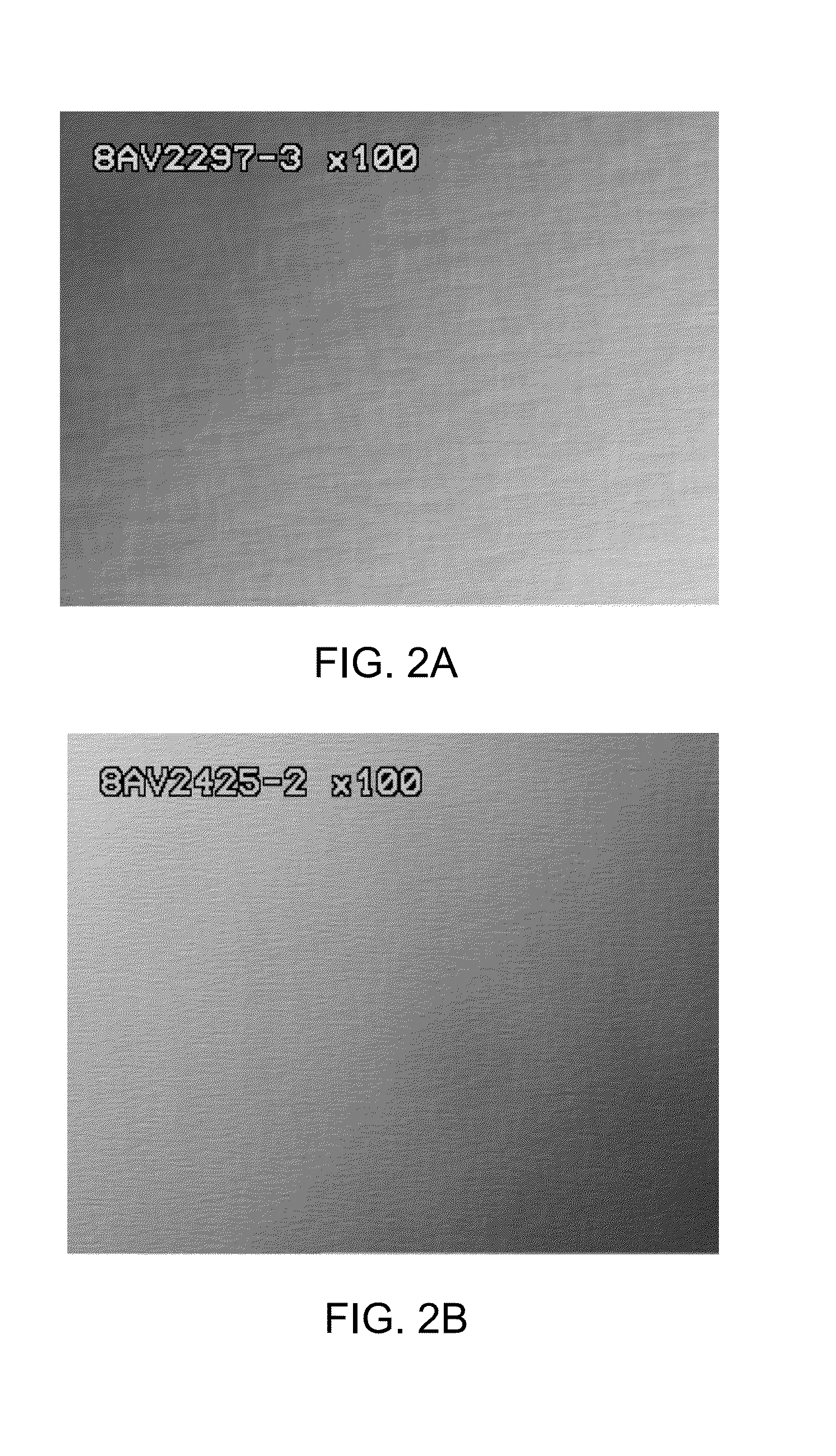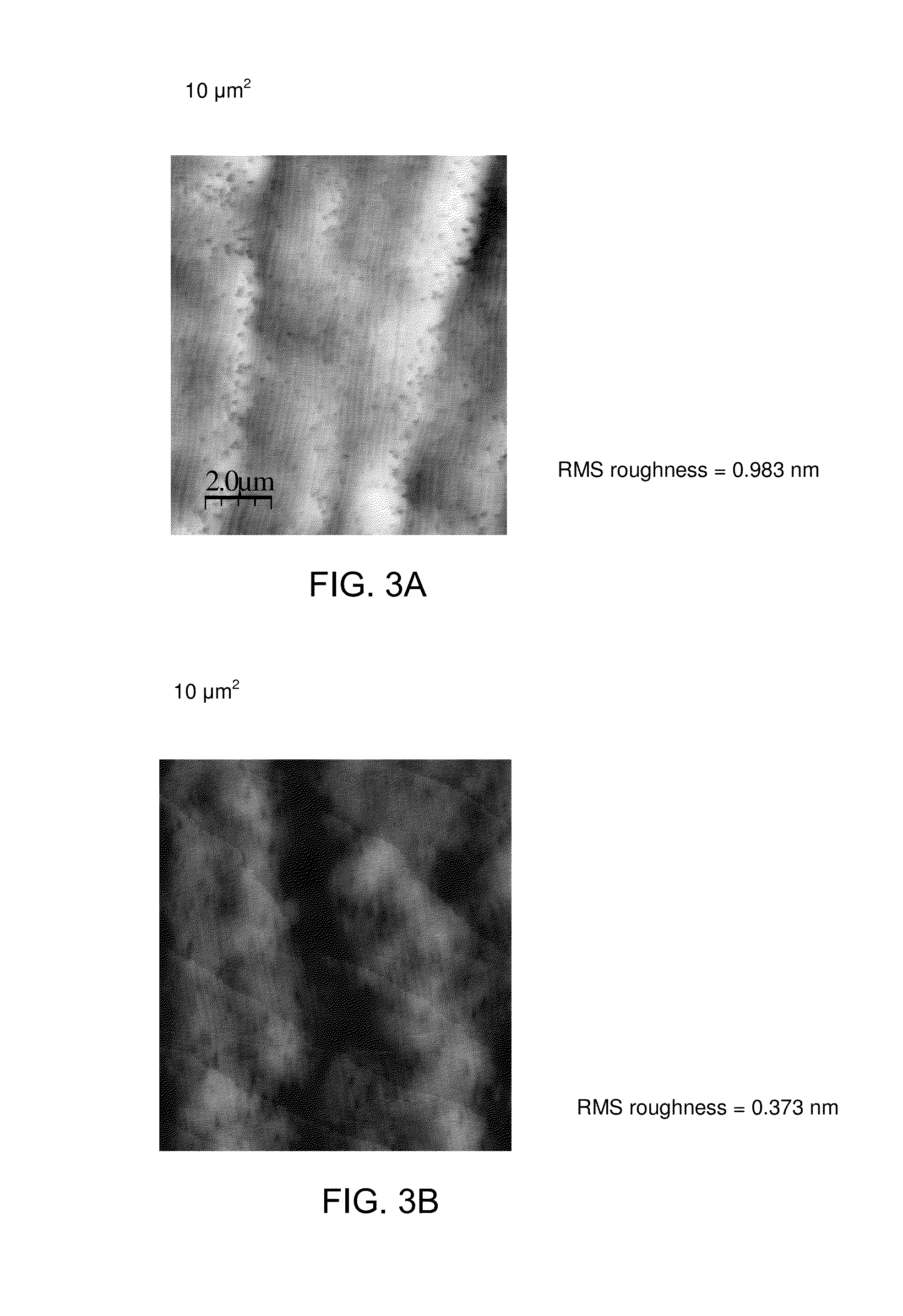Method for Substrate Pretreatment To Achieve High-Quality III-Nitride Epitaxy
a technology of nitride and substrate, applied in the direction of polycrystalline material growth, chemistry apparatus and processes, crystal growth process, etc., can solve the problems of large majority of defects generated at the substrate-layer interface, epitaxial defects, and inability to meet the requirements of advanced device structures, such as laser diodes
- Summary
- Abstract
- Description
- Claims
- Application Information
AI Technical Summary
Benefits of technology
Problems solved by technology
Method used
Image
Examples
embodiment 1
[0029]A (0001) sapphire (α-Al2O3) substrate is used for the pretreatment and subsequent epitaxial deposition of the gallium nitride (GaN) layer by hydride vapor-phase epitaxial (HVPE) technique. According to the present invention, pretreatment of the sapphire substrate is performed using gas-products of the reaction between aluminum (Al) and hydrogen chloride (HCl). The reaction takes place in the source zone of the reactor where metallic Al reacts with the gaseous HCl flowing over it. The transport of the gas products to the deposition zone is assisted by argon (Ar) as a carrier gas. However, carrier gases such as hydrogen (H), nitrogen (N), argon (Ar), helium (He) or their mixtures can also be used. Before and after the pretreatment, nitridation of the substrate in ammonia (NH3) gas flow and intermediary buffer layer deposition can be executed. The growth of GaN after the pretreatment employs gallium chloride (formed in the source zone of the reactor) and ultra-pure gaseous ammoni...
embodiment 2
[0035]In another embodiment of the present invention, a (0001) 6H—SiC substrate is used as a substrate for the growth of AlN epilayer by the HVPE technique. The substrate is 3.5 degree off-oriented toward the a-plane. Again, according to the present invention, prior to the growth of the epilayer, the SiC substrate is subjected to the gas-products of the reaction between HCl and Al. After the pretreatment, deposition of AlN on Si-plane of the substrate is performed using aluminum chloride and ammonia as precursors for the group-III metal and nitrogen, respectively. Morphology and structural properties of the epilayer are analyzed by AFM and XRD, and compared to those of regular epilayers.
[0036]The pretreatment is carried out at 400 sccm HCl flow rate through the gas-channel containing high purity Al metal loading. The duration of the pretreatment is 14 min. After the pretreatment, the substrate is exposed to pure NH3 flow at 4 slm rate for 15 min to fulfill nitridation. Growth of the...
PUM
 Login to View More
Login to View More Abstract
Description
Claims
Application Information
 Login to View More
Login to View More - R&D
- Intellectual Property
- Life Sciences
- Materials
- Tech Scout
- Unparalleled Data Quality
- Higher Quality Content
- 60% Fewer Hallucinations
Browse by: Latest US Patents, China's latest patents, Technical Efficacy Thesaurus, Application Domain, Technology Topic, Popular Technical Reports.
© 2025 PatSnap. All rights reserved.Legal|Privacy policy|Modern Slavery Act Transparency Statement|Sitemap|About US| Contact US: help@patsnap.com



